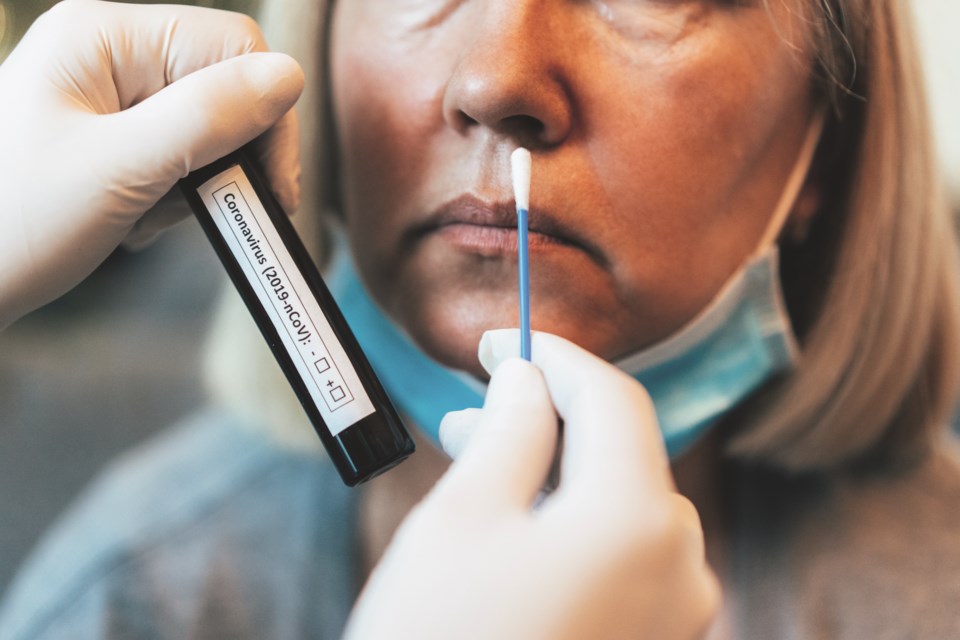Royal Columbian Hospital is the first hospital in B.C. to utilize rapid testing for COVID-19 on patients requiring urgent, unscheduled surgery, says Fraser Health.
The decision to move to rapid testing in addition to current testing and screening protocols comes after the Abbott ID NOW COVID-19 point-of-care molecular test was trialed on urgent surgical patients during the second wave of the COVID-19 pandemic.
Between December 2020 and April 2021, 1,100 asymptomatic patients admitted for urgent, unscheduled surgery at RCH received the ID NOW COVID-19 test, said a Fraser Health news release. The patients also received a more conventional nasopharyngeal swab test for a comparative standard.
The rapid test detected two positive cases of COVID-19. Both patients went on to develop symptoms of the disease while recovering from surgery on a COVID ward. The study concluded the ID NOW COVID-19 point-of-care molecular test (rapid test) can be useful in protecting staff and patients when urgent surgery is required and time is of the essence. The results were recently published in Springer Nature and the Canadian Journal of Anesthesia.
“Ideally, a patient’s infectious status should be known so that optimal personal protective equipment, aerosol minimizing techniques, and patient flow through the hospital can be adopted,” says Dr. Tonia Tauh, study co-author and anesthesiologist, RCH. “However the nature of our work doesn’t always give us time to get test results back prior to surgery.”
The ID NOW COVID-19 test produces a result in 15 minutes. The more common form of testing is the polymerase chain reaction (PCR) test, where cells from deep inside the nasal cavity are analyzed for the presence of genetic material from the virus. The PCR test is processed in a laboratory, and can take 24-to-72 hours for results to be known.
“Having the ability to turn around a test result in minutes rather than hours can help protect our staff, our patients and prevent outbreaks of COVID-19,” says Dr. Susan Lee, study co-author and anesthesiologist, Royal Columbian Hospital. A follow up study concluded rapid point-of-care testing also increases the sense of workplace safety, improves morale, and reduces worry associated with COVID-19.



